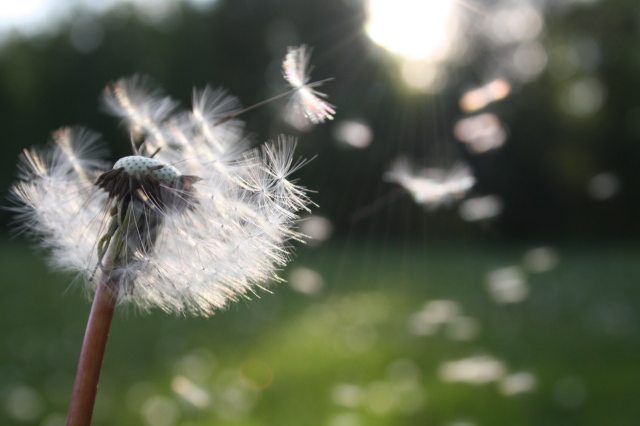When your baby is born can have an impact on many things, like size, personality and even rates of academic success. Now you can add allergies and asthma to that list. A new study shows that babies are more likely to develop asthma when they are born during a very specific time of year.
New research has found that babies born during grass pollen season have a higher risk of developing asthma later on, however, babies who spend an entire hay fever season in the womb may be protected against the risk.
Babies born during pollen season more likely to get asthma, new study finds https://t.co/kXNbY8tKl8 pic.twitter.com/GT6ilqfFHO
— The Independent (@Independent) September 18, 2018
The grass pollen season in the U.S. typically runs from May to August, but it can begin earlier or end later depending on which region you live in. The study found that babies born during those months had elevated levels of antibodies in the blood known as immunoglobulin E (IgE). These antibodies help protect the body from viruses, bacteria and allergens. They can also help predict the onset of allergic diseases, like asthma, later in life.
While many previous studies have already shown that babies with high levels of IgE in cord blood are at greater risk of developing allergies later on, what was different and important about this particular study is that it looked at the effects of pollen exposure during pregnancy as well. The findings showed that babies who were in utero for an entire grass pollen season had lower IgE levels.
“This was a significant finding and indicates the possible development of a sensitisation barrier. However, more research needs to be done and currently we are working on studies to identify the specific risk time periods of pollen exposure during pregnancy on asthma and allergies in children,” explained Associate Professor Bircan Erbas from La Trobe University’s School of Psychology and Public Health in Melbourne.
Of course, that doesn’t mean that being born from May to August automatically means your baby will develop allergies and asthma. “The study provides new insight that could help us predict and manage diseases like asthma – which are a significant public health burden,” said Erbas. “However, it’s important to remember there are a number of factors that can determine who gets asthma or allergies. This is one piece of the puzzle.”
—Shahrzad Warkentin
Featured photo: Nita via Pexels
RELATED STORIES:
Exposure to Pollution During Pregnancy Can Affect Your Kids, New Study Finds
Do Baby Wipes Cause Food Allergies in Kids? New Study Has a Surprising Answer
Are BPA-Free Products Really Safe? A New Study Raises Concerns











